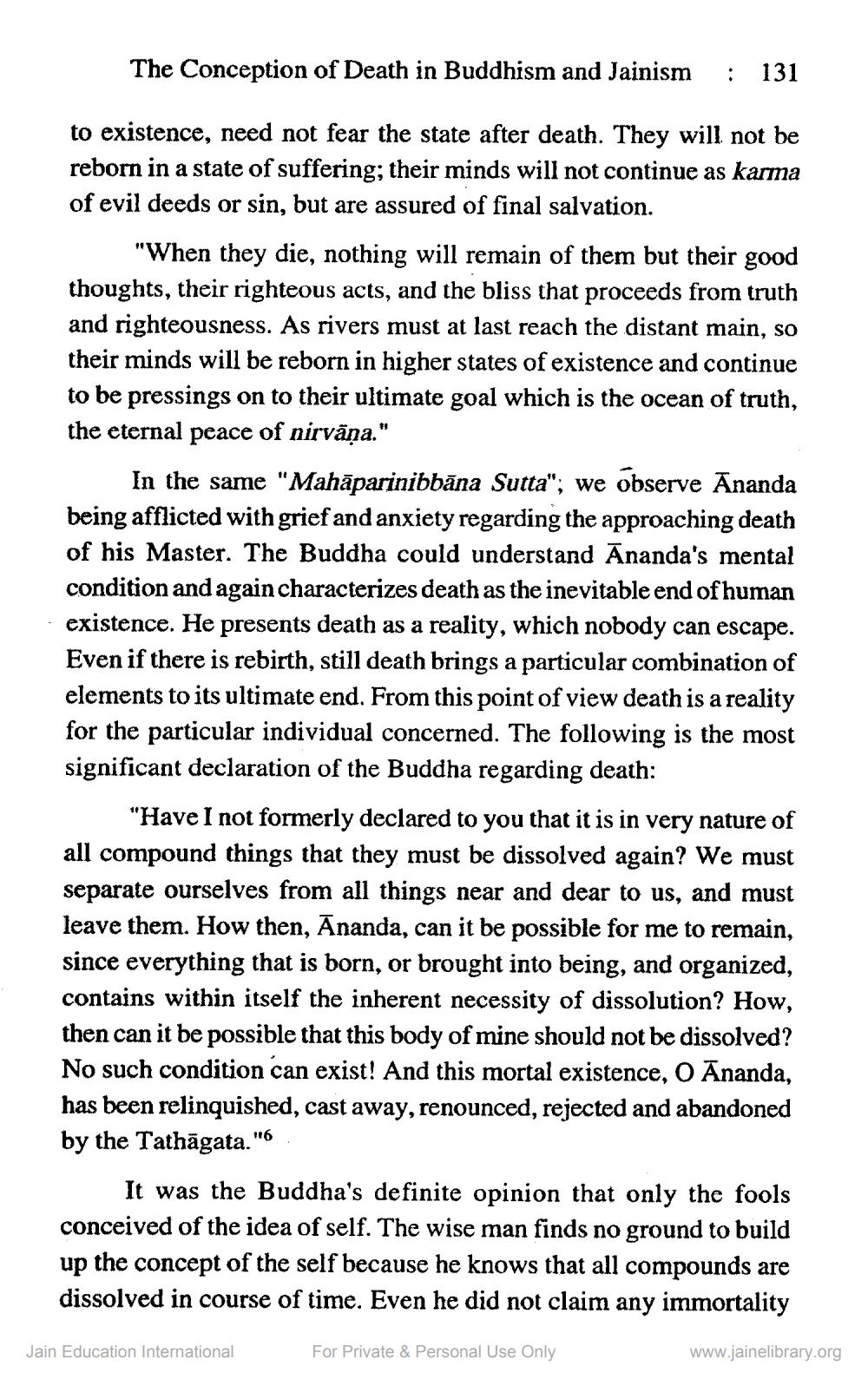________________
The Conception of Death in Buddhism and Jainism
: 131
to existence, need not fear the state after death. They will not be reborn in a state of suffering; their minds will not continue as karma of evil deeds or sin, but are assured of final salvation.
"When they die, nothing will remain of them but their good thoughts, their righteous acts, and the bliss that proceeds from truth and righteousness. As rivers must at last reach the distant main, so their minds will be reborn in higher states of existence and continue to be pressings on to their ultimate goal which is the ocean of truth, the eternal peace of nirvana."
In the same "Mahāparinibbāna Sutta"; we observe Ananda being afflicted with grief and anxiety regarding the approaching death of his Master. The Buddha could understand Ananda's mental condition and again characterizes death as the inevitable end of human existence. He presents death as a reality, which nobody can escape. Even if there is rebirth, still death brings a particular combination of elements to its ultimate end. From this point of view death is a reality for the particular individual concerned. The following is the most significant declaration of the Buddha regarding death:
"Have I not formerly declared to you that it is in very nature of all compound things that they must be dissolved again? We must separate ourselves from all things near and dear to us, and must leave them. How then, Ananda, can it be possible for me to remain, since everything that is born, or brought into being, and organized, contains within itself the inherent necessity of dissolution? How, then can it be possible that this body of mine should not be dissolved? No such condition can exist! And this mortal existence, O Ānanda, has been relinquished, cast away, renounced, rejected and abandoned by the Tathāgata."6
It was the Buddha's definite opinion that only the fools conceived of the idea of self. The wise man finds no ground to build up the concept of the self because he knows that all compounds are dissolved in course of time. Even he did not claim any immortality
Jain Education International
For Private & Personal Use Only
www.jainelibrary.org




